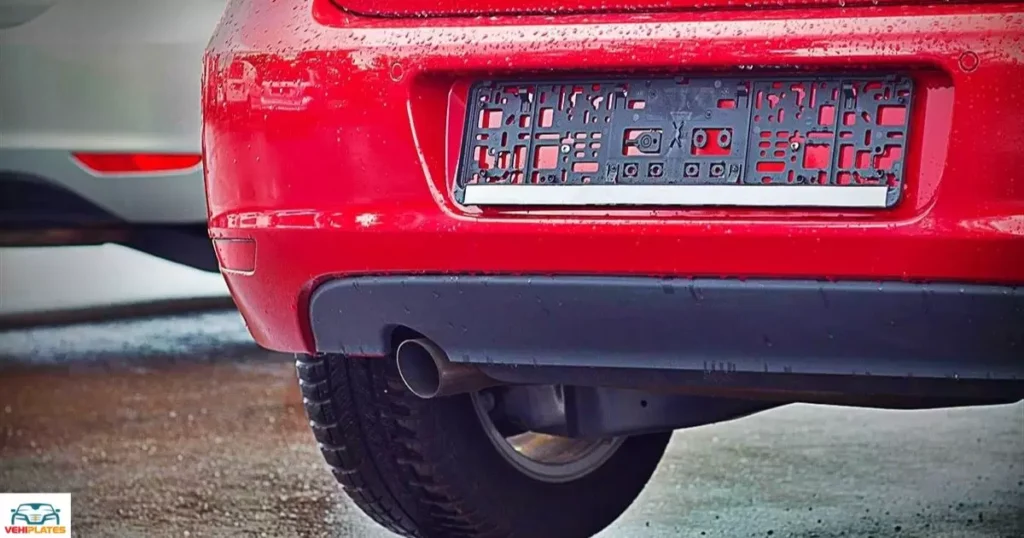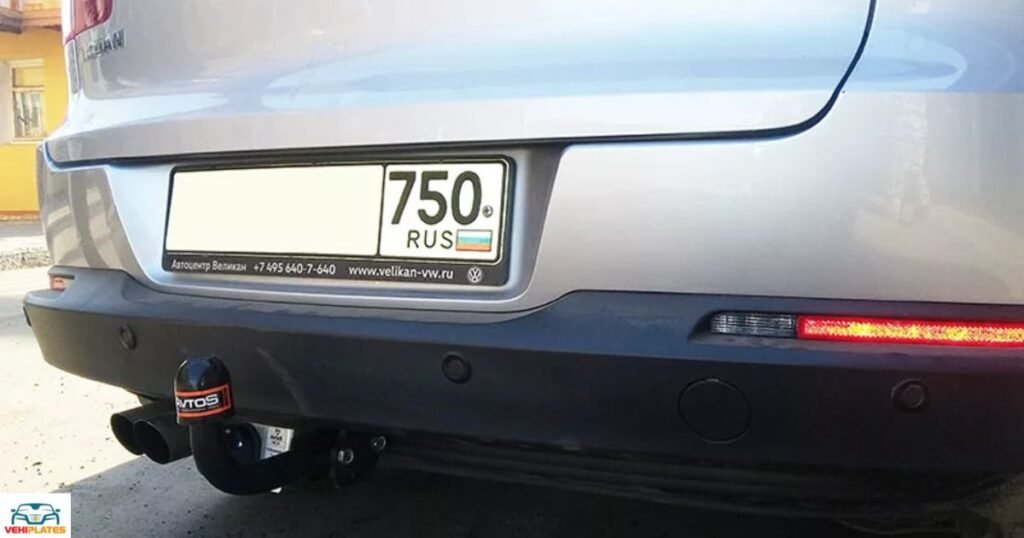Driving without a license plate is a violation of the law in many jurisdictions around the world. License plates serve as a crucial form of identification for vehicles.
They aid law enforcement in identifying vehicles involved in crimes and ensuring road safety. They also facilitate various administrative processes related to vehicle ownership and operation. This article explores the legal implications and consequences of driving without a license plate.
Why Are License Plates Required?
License plates, also known as registration plates, serve several important purposes:
Identification: License plates provide a unique identification number for each vehicle. This allows authorities to track ownership, registration status, and any associated legal or administrative records.
Law Enforcement: License plates enable law enforcement officers to quickly identify vehicles involved in traffic violations, accidents, or criminal activities. This aids in maintaining public safety and enforcing traffic laws.
Taxation and Registration: License plates show that the relevant government authority has properly registered a vehicle. They also indicate that the vehicle owner has paid any required taxes or fees. This is essential for ensuring compliance with vehicle registration laws and regulations.
Traffic Monitoring: License plates are used in various traffic management systems, such as toll collection, congestion pricing, and automated traffic enforcement (e.g., red light cameras, speed cameras).
Legal Implications of Driving Without a License Plate

Driving without a license plate is typically considered a serious offense, carrying various legal consequences:
Traffic Violation: Operating a vehicle without a license plate is a traffic violation in most jurisdictions. Depending on the severity and frequency of the offense, it may result in fines and points on the driver’s license. There’s also the potential for license suspension or revocation.
Vehicle Impoundment: In some cases, law enforcement officers may impound a vehicle found to be operating without a license plate, which could result in additional costs and inconvenience for the vehicle owner, particularly if they are unfamiliar with the process of acquiring license plates. One might wonder, ‘How To Get Mexican License Plates?‘
Criminal Charges: Driving without a license plate may lead to criminal charges in certain circumstances. If a vehicle is suspected of being involved in a crime or if it is part of a broader pattern of illegal activity, this is especially true.
Increased Scrutiny: Vehicles without license plates may attract heightened attention from law enforcement officers. This attention can lead to more frequent stops, inspections, and inquiries into the vehicle’s status and ownership.
Consequences of Driving Without a License Plate
The consequences of driving without a license plate can vary depending on the jurisdiction and the specific circumstances of the offense. Some common repercussions include:
| Jurisdiction | Penalty for Driving Without a License Plate |
| United States | Fines, points on driver’s license, vehicle impoundment |
| United Kingdom | Fines, penalty points, possible vehicle seizure |
| Canada | Fines, vehicle impoundment, license suspension |
| Australia | Fines, demerit points, vehicle confiscation |
| European Union | Fines, possible confiscation of vehicle |
| Other Countries | Penalties vary by jurisdiction |
Exceptions and Exemptions

Generally, authorities prohibit driving without a license plate, but specific situations may allow for exceptions and exemptions.
Temporary Circumstances: Some jurisdictions allow temporary exemptions from displaying license plates. This can happen when transporting a newly purchased vehicle or awaiting replacement plates.
Specialty Vehicles: Certain types of vehicles, like antique cars and classic cars, may be eligible for exemptions or alternative registration requirements. Off-road vehicles might also qualify under specialized licensing programs.
Government Vehicles: Government agencies or law enforcement entities may own or operate vehicles exempt from standard license plate requirements. These vehicles typically display alternative forms of identification.
FAQ’s
Do I have to have a license plate on my car?
Yes, in most jurisdictions, vehicles must display license plates as a legal requirement.
What happens if I drive without a license plate?
Driving without a license plate can result in fines, points on your license, and potentially vehicle impoundment.
Are there any exceptions to the requirement for license plates?
Some jurisdictions may offer temporary exemptions for certain circumstances, such as transporting a newly purchased vehicle.
Conclusion
Driving without a license plate is illegal in most jurisdictions and can result in significant legal consequences. License plates serve essential functions in vehicle identification, law enforcement, taxation, and traffic management.
Violating license plate laws can lead to fines, points on the driver’s license, vehicle impoundment, and potential criminal charges. Authorities expect drivers to comply with license plate requirements to ensure road safety and regulatory compliance. Certain exceptions and exemptions may apply in specific circumstances.










